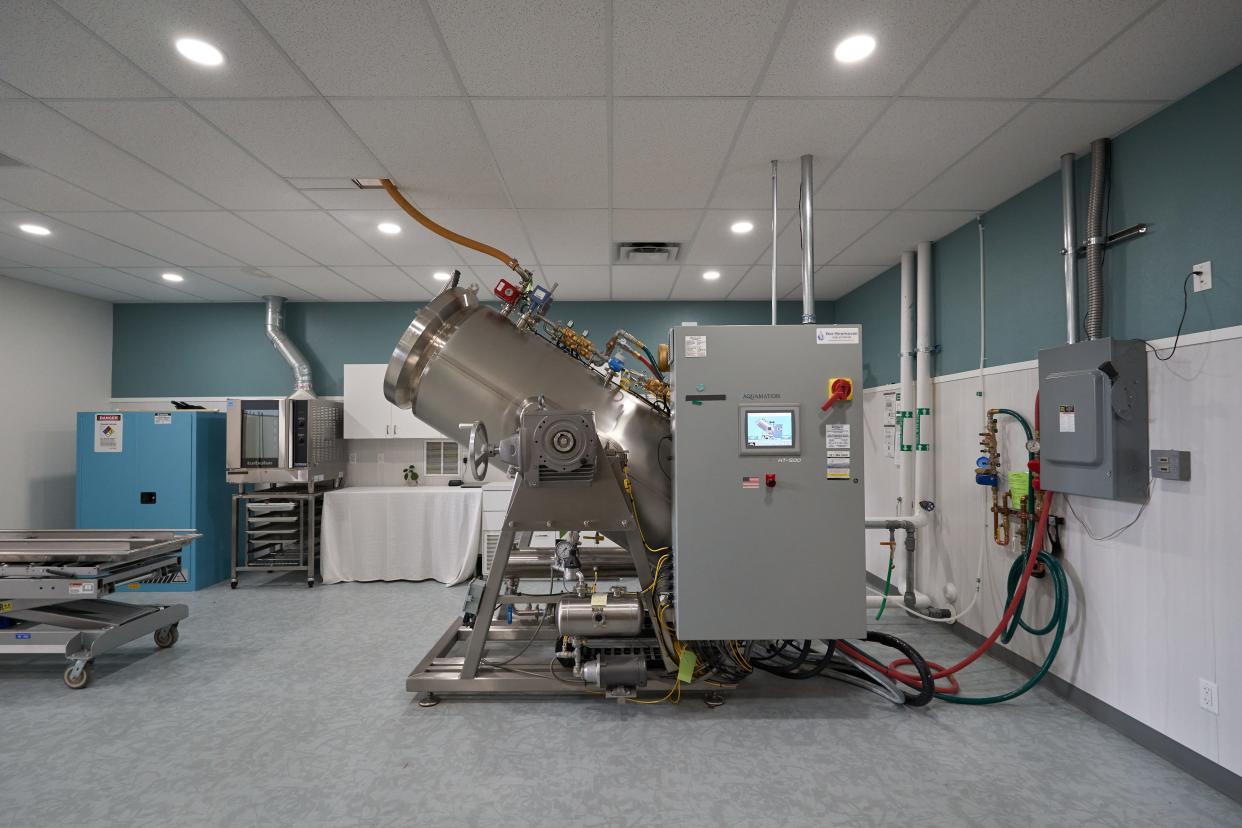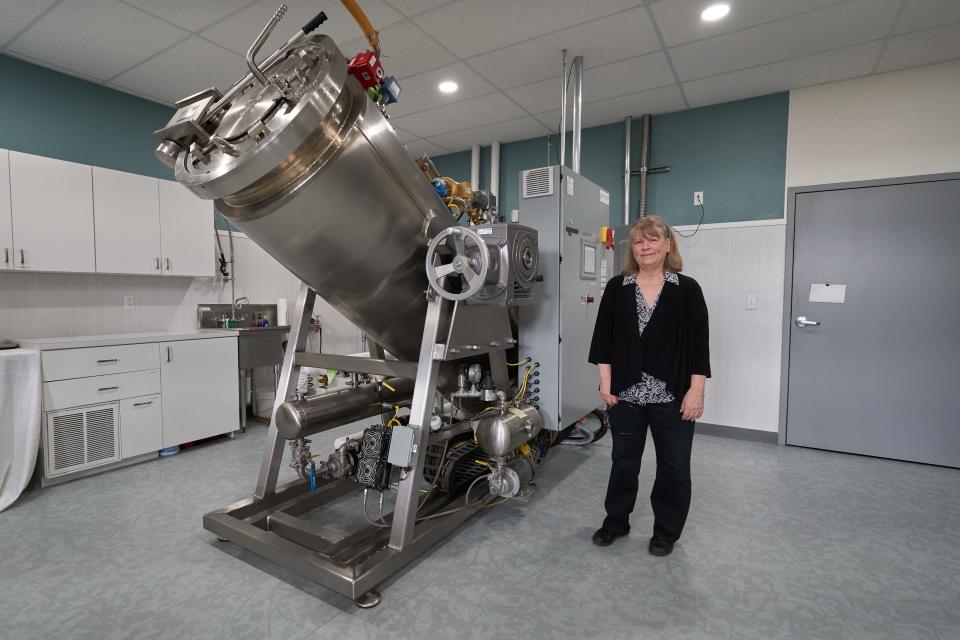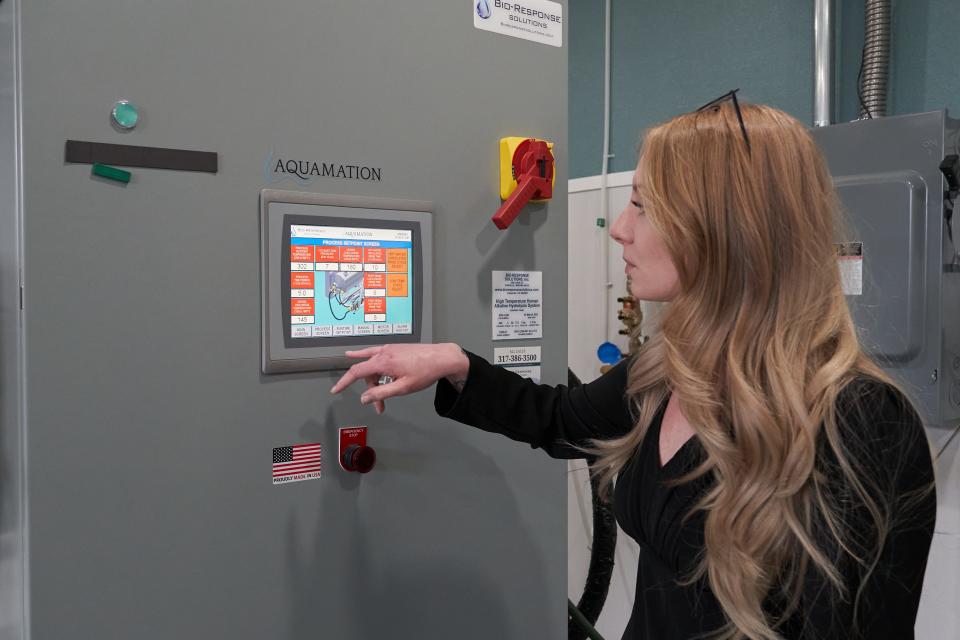When their son passed away, this family opted for a greener cremation process. Here's why

Before Will Sheehan passed away, he asked his parents, Mag and Bill, that what was left of him didn’t go in the ground in a casket.
Growing up, he listened to his parents' music, like The Beatles and Pink Floyd, and eventually became a sound engineer — but he was always big on the environment.
“He was really involved with anything that was going to save the world,” Mag Sheehan said, adding her son would even give her and Bill a hard time about recycling.
When Will passed in 2022, after battling colon cancer, Mag and Bill Sheehan opted for a water cremation. Although they didn’t know about this method at the time, they liked that it seemed like a more natural and gentle approach.
“We made the decision to go ahead with that idea because it sounded so nice. I mean, anything's nicer than a fire, right?” Mag Sheehan said.
Water cremation emerges as a more environmentally friendly option
Traditional burials and cremations both pose environmental concerns.
Every year in the United States, around 827,060 gallons of embalming fluid (mainly formaldehyde) as well as “approximately 30 million board feet of hardwoods, 2,700 tons of copper and bronze, 104,272 tons of steel, and 1,636,000 tons of reinforced concrete” are used in conventional burials, according to a 2012 article from the Berkeley Planning Journal.
Energy from flame cremations emit greenhouse gases that contribute to climate change, according to one study. In addition, the combustion process generates air pollutants like particulate matter, sulfur dioxide, nitrogen oxides, volatile organic compounds and heavy metals — which are harmful for the environment and human health — according to another study.
But water cremations aren't as resource heavy as traditional burials (no wood, cement, embalming fluid, etc.) and don't emit the air pollutants from flame cremation since there is no combustion involved.
Fort Collins crematory expanding water cremation technique
Stephanie Goes, who co-owns the funeral home where Will Sheehan was cremated, likes to garden and do what she can to take care of the environment.
Stephanie Goes and her husband, Chris Goes, embrace that same mentality in their business, Goes Funeral Care & Crematory.
Years ago, Chris Goes started hearing about water cremation, or alkaline hydrolysis, as a more sustainable alternative to flame cremation. When the city of Fort Collins announced goals to reduce its carbon footprint, it was his catalyst to get on board — with their first water cremation in December 2022.
“We’re using water, heat, some gentle motion and then alkali salts. And what they're doing is they're actually just breaking down the body to its natural organic components,” said Samantha Hinzmann, the water cremation specialist at Goes Funeral Care & Crematory.

The water formation, or effluent, that’s a byproduct of this process is then discharged into water treatment, although families are welcome to take some with them, Hinzmann said. What’s left behind are the bones, which are then dried and processed to get the ashes.
“So the end result is very, very similar. It's just a different process that we're going about to get there that's more carbon neutral,” Hinzmann said.
At Goes Funeral Care & Crematory, Stephanie Goes said last year they performed about four water cremations per month (around 10% of their total calls) and so far this year, she estimated it’s gone up to seven per month.
She said her goal is to reduce flame cremation by half (which currently makes up 80% of their calls), to decrease their carbon footprint. Although they cannot transition entirely to water cremation, since they have a limit of 300 pounds and age minimum of 3 years with their unit, she said they also buy wind credits for their electric power.
The Bio Response Solutions equipment they use, which cost $250,000, is the same the Mayo Clinic uses for the disposition of whole-body donors, Stephanie Goes said.

While funeral costs can vary, flame cremation is about $2,500, water cremation is about $3,000, and traditional funerals can range from $12,000 to $15,000, Chris Goes said.
Hinzmann and the funeral care owners said some might be skeptical about the idea because they are used to traditional burial or flame cremation, but once they learn more about water cremation, they are more open to it.
“When I became most comfortable with it, someone had shared with me, ‘well, in my womb, my children were in water,’” Chris Goes said. “And I thought that was just beautiful.”
For Mag and Bill Sheehan, six months after their son’s death, they held a life celebration where friends and family gathered with live music from some of the bands Will Sheehan had worked with.
The Sheehans kept their son's ashes, and in his honor they used some of the water from the cremation to plant a tree.
This article originally appeared on Fort Collins Coloradoan: Water cremation in Colorado is environmentally friendly

